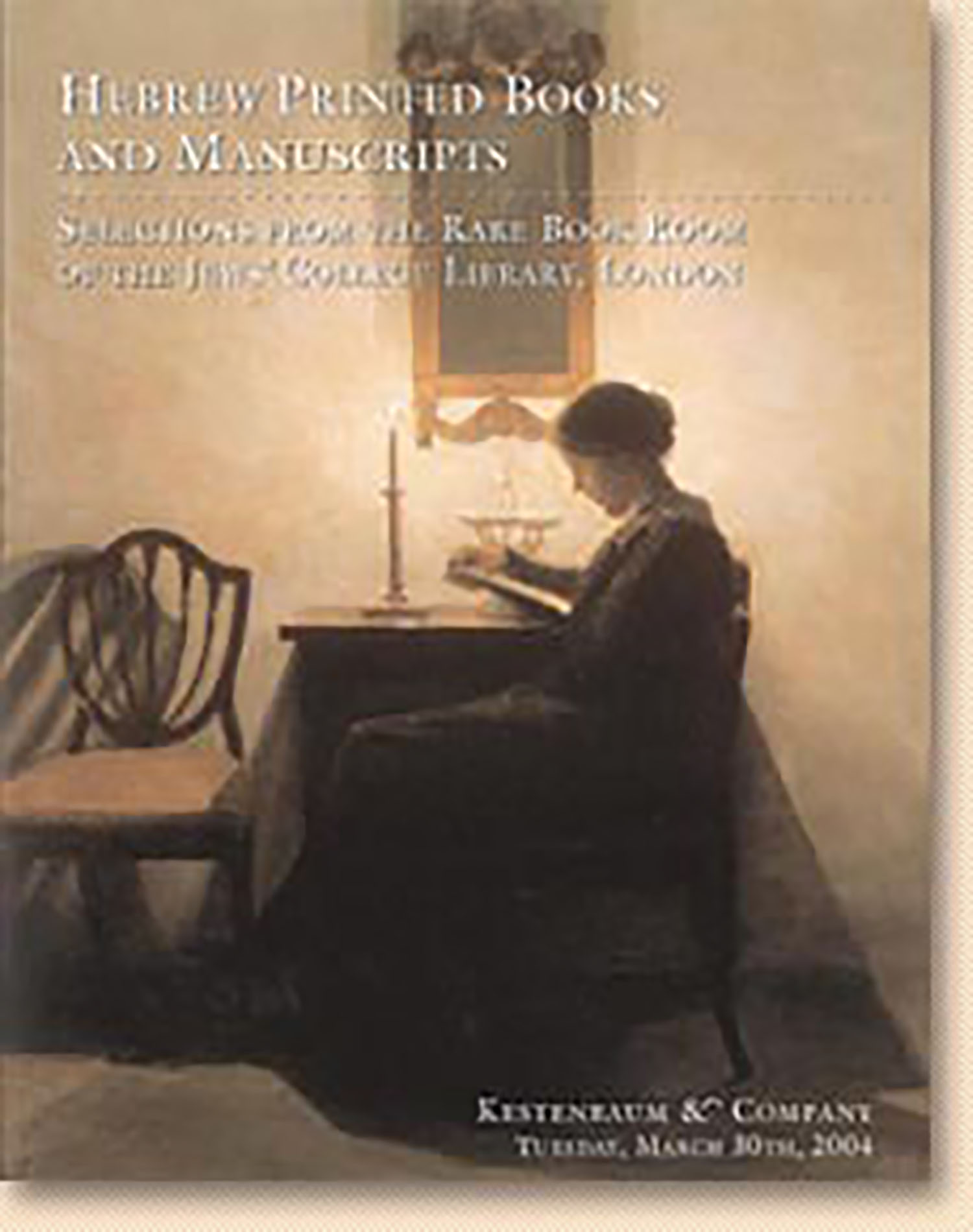(CLEVES GET CONTROVERSY).

AUCTION 23 |
Tuesday, March 30th,
2004 at 1:00
Hebrew Printed Books & Manuscripts from The Rare Book Room of the Jews College Library, London The Third Portion
Lot 88
(CLEVES GET CONTROVERSY).
v.p: v.d
Est: $500 - $700
PRICE REALIZED $800
Deals primarily with the Cleves Get controversy, one of the great causes célèbres of the 18th century which involved most of the great rabbinic adjudicators of the day. These works include opinions by Jacob Emden, Ezekiel Landau (Noda Be-Yehuda), Aryeh Leib of Metz (Shaagath Aryeh), Saul of Amsterdam and many others. This copy of Or Yisrael with pp.31-2 present, usually removed due to the severity of language against the Rabbinate of Frankfurt a/Main, calling them “Reshaim Gemurim,” although the author himself uses much harsher language calling them “sheratzim” (creeping vermin), “insolent idiots” and other choice epithets based upon many clever plays on words; see ff. 16-17. R. Aaron Shimon of Copenhagen, who was instrumental in the divorce, gathered most of the written responsa and polemics regarding this case in his work Or Ha-Yashar. He relates that a broadside signed by ten prominent Polish Rabbis stating that the divorce was valid was burnt in public by the Beth Din of Frankfurt. He states that a “Pashkevil” was published belittling some of the Polish Rabbis, especially R. Shlomo of Chelma, the author of Mirkevet Ha-Mishna, calling him a frequenter of concerts and a chessplayer (R. Aaron Shimon himself was called a card player - p.110a in Or Ha-Yashar). R. Nathan Maas, the Rosh Beth Din Of Frankfurt, author of Binyan Shlomo, is especially singled out with harsh invective and called Nathan Ha- Azati, a play on words meaning both “insolent “ and the namesake of the infamous Sabbatian prophet
